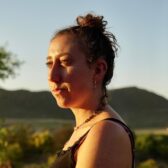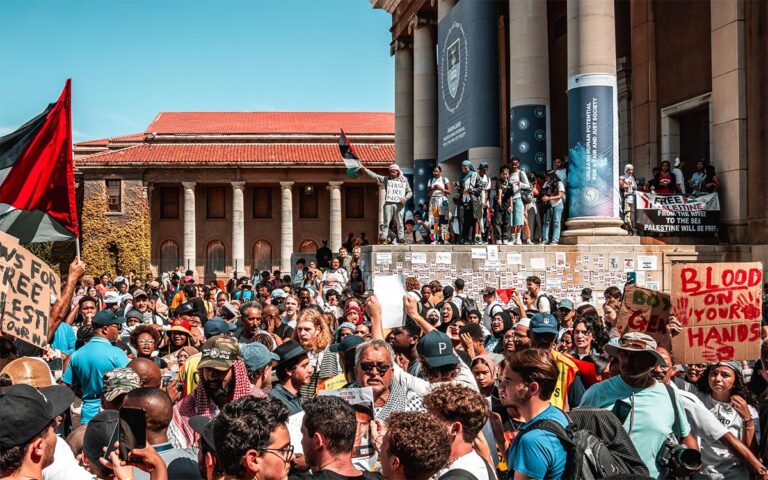
I am a proud South African and a proud Jew, but balancing these identities has been increasingly hard for me after Oct. 7. I was raised with a deep awareness of apartheid and its impact on my country, as well as a strong love and connection to Israel and my religion. I have always struggled to categorize myself as either a Jewish South African or a South African Jew, unsure of what it is that defines me.
This internal conflict came to a head during Israel Apartheid Week at my university. As my campus devolved into protests and anti-Israel activism, a powerful transformation unfolded. In the midst of hostility and division, my Jewish peers and I discovered an unexpected source of strength and unity that would ultimately redefine our experience. This is the story of how we turned a fiercely hostile environment into a moment of inspiration and resilience.
The background: Israel Apartheid Week in South Africa
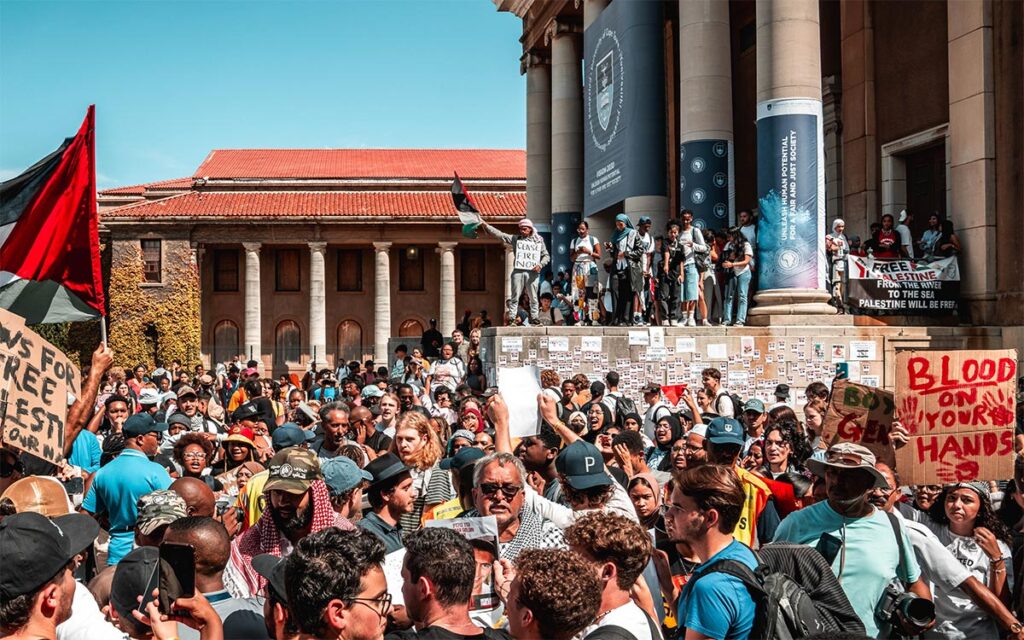
Israel Apartheid Week (IAW) is a series of lectures and rallies that aim to protest against Israel on university campuses. While IAW occurs each year all around the world, it has a particularly deep impact on South Africa because a comparison is drawn between the oppression of Palestinians and that of South Africa’s Black majority prior to achieving democracy in 1994.
Our society has been deeply hurt by the racism and injustices of apartheid and this impacts the way the conflict in Israel is viewed. On campuses across the globe, there’s been a pique in anti-Israel advocacy due to the war in Gaza. In South Africa, there is even more attention because of our apartheid history and current involvement in the International Court of Justice’s case against Israel.
Going into IAW this year, the South African Union of Jewish Students (SAUJS) was prepared for anti-Israel activism to interest students who had previously been politically ambivalent. However, we did not expect the aggression, anger and antisemitism we were faced with.
SAUJS’s response to Israel Apartheid Week
SAUJS is made up of about 300 Jewish students on the University of Cape Town campus. Our goal throughout the year is to enhance and promote Jewish life on campus by hosting Shabbat dinners, parties and education events. During IAW, our role was specifically to ensure Jews felt comfortable and had a space to avoid the hostilities of the week. We set up a stand, filled a table with Magen David necklaces and “Jewish and Proud” merchandise, and ran a “spread hummus, not hate” campaign by handing out hummus and pita to anyone walking past.
The Palestinian Solidarity Forum greeted us with a table displaying the Hezbollah, Hamas and Palestinian Islamic Jihad flags. While this would be illegal in most countries, South Africa does not recognize these groups as terrorist organizations. This meant that, despite our efforts, the flags of organizations that call for the death of Jews in their charters would not be removed from campus. The PSF also invited Hamid Rizq, a spokesperson for the Houthis and a vocal Holocaust denier, as their guest speaker.
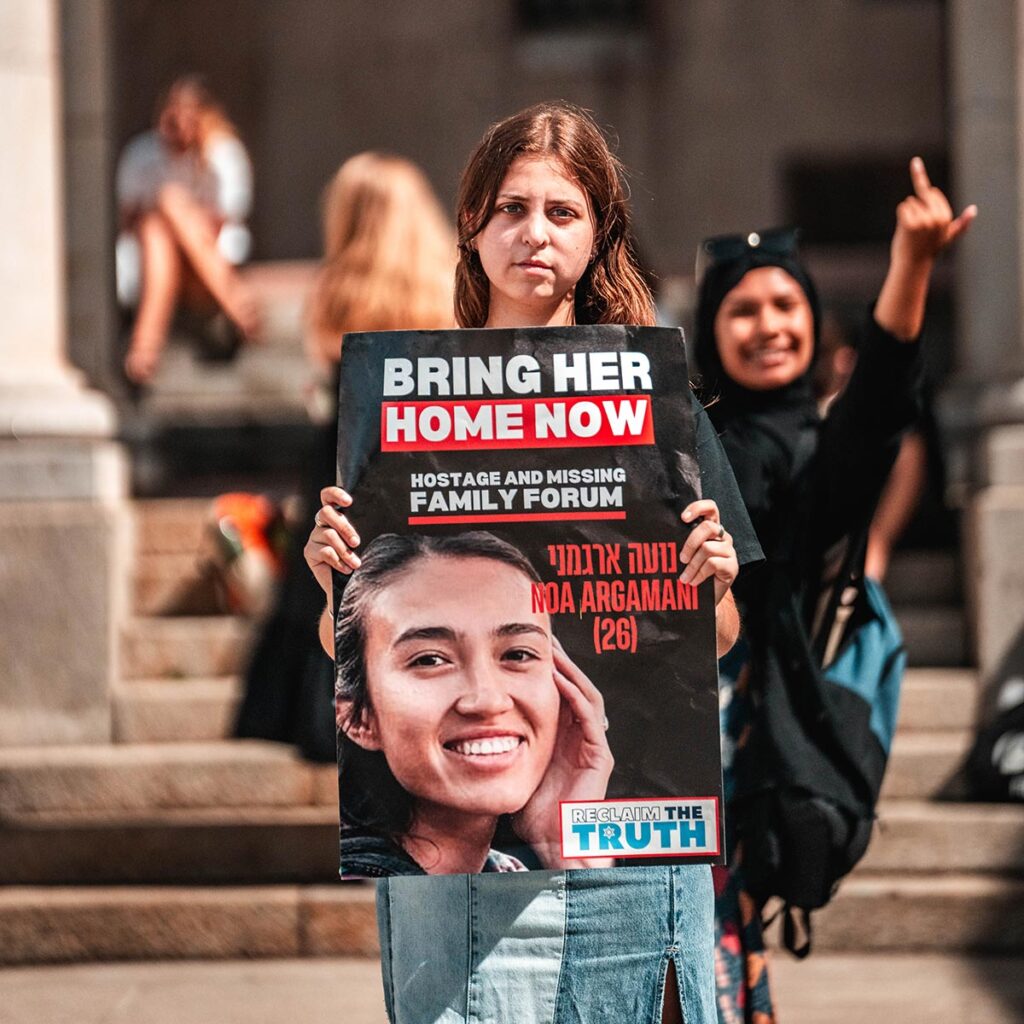
As a South African, I am passionate about the right to protest and express views across the political spectrum, especially in a university environment. It is important for students to engage with difficult subjects and be intellectually challenged. However, during IAW, there were clear moments that went beyond criticizing Israel and entered into the territory of antisemitism.
SAUJS attempted to promote meaningful dialogue between students. However, the problem with an environment as polarizing as a university setting is that there is often no space for nuance, making effective dialogue difficult.
During the first two days of IAW, the only times I felt that my voice was heard in a productive way was when I stepped away from the frontlines. It gave me perspective and allowed me to have more productive conversations. Through calmly engaging with people in smaller groups, it became easier to really listen and communicate my thoughts constructively.
A moment of Jewish solidarity amid tensions
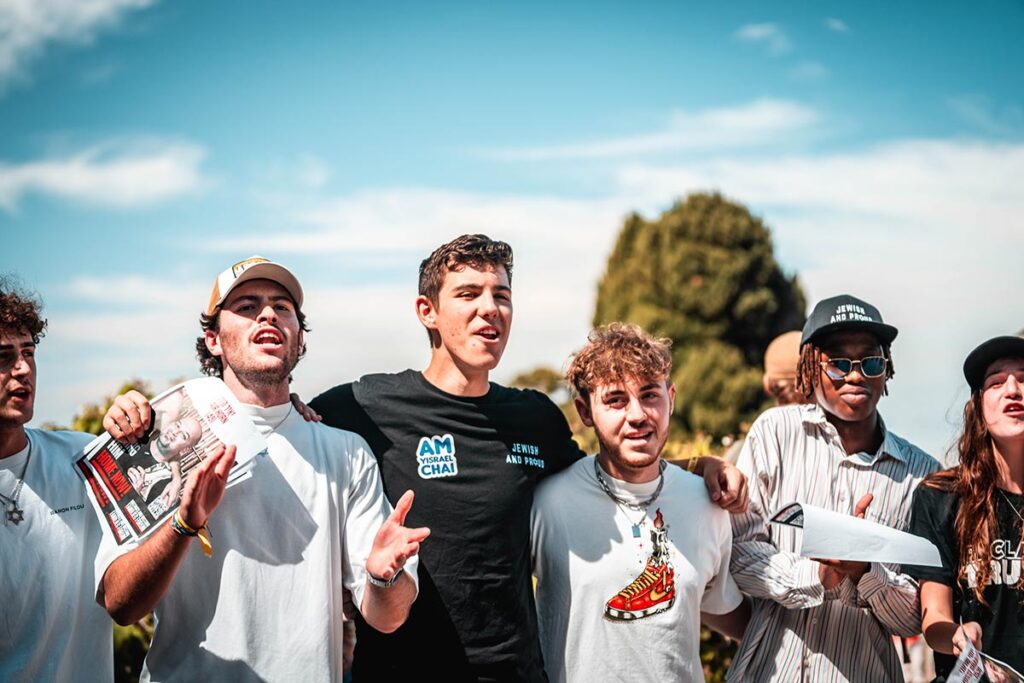
The tensions on campus escalated on the third and final day of IAW. Approximately 500 students arrived to protest against SAUJS’s stand. Conversations were drowned out by chants such as “from the river to the sea.” One Jewish student had his kippah ripped off his head as he attempted to put on tefillin. Students (and a group of non-students) arrived at the SAUJS stand wearing shirts that boldly declared “Hamas is the Resistance!” and signs reading “Zionism = Nazism.”
Amid all the chaos, a powerful moment of solidarity from that day stands out to me. The Jewish students formed a circle, linked our arms together and began singing. We sang “Vehi Sheamda,” “Tov L’Hodot” and other Hebrew songs. We leaned into each other for support and a sense of community. At one point, the singing from our group of 50 had become louder than the screaming from the 500 people on the other side.
Lessons learned and moving forward
Over those three days, I learned more about myself than I have ever learned before. One of my biggest lessons was the ability to know when to focus outward and engage and when to turn inward to my community. It is so important to have those difficult conversations, to challenge other peoples’ beliefs and to have your own beliefs challenged. But it is equally as important to know when to embrace your support system and be a pillar for your community.
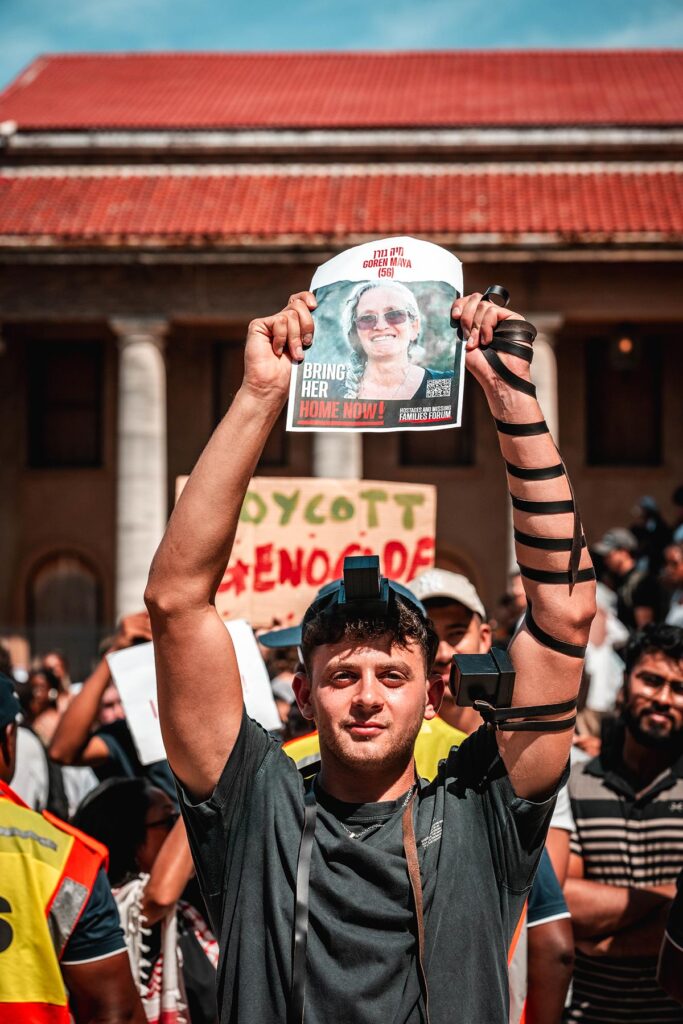
For most Jewish students, the war in Gaza hits close to home — it is personal and it is emotional. Our feelings about the war and ongoing situation in Israel and Gaza shouldn’t be dealt with alone.
Before IAW, I didn’t realize how many other Jewish students were struggling in the same ways as I was on campus. These past few months have forced me to grapple with my own beliefs, figure out what’s important to me, and better understand what kind of people I need around me. It was comforting to be around so many students feeling — and more importantly, expressing — similar emotions. While my vulnerability first felt like a sign of weakness, it became a way to form deeper relationships with other Jewish students on campus.
I now realize the value of supporting others in a way that feels right. Not everyone feels comfortable or wants to take on the front lines. You have to know yourself and learn what works for you. Whether it’s standing in the background eating hummus with your friends, engaging in quieter conversations on the side, or standing front and center, it all impacts and lifts up our Jewish community.
Originally Published Jun 10, 2024 11:29AM EDT
